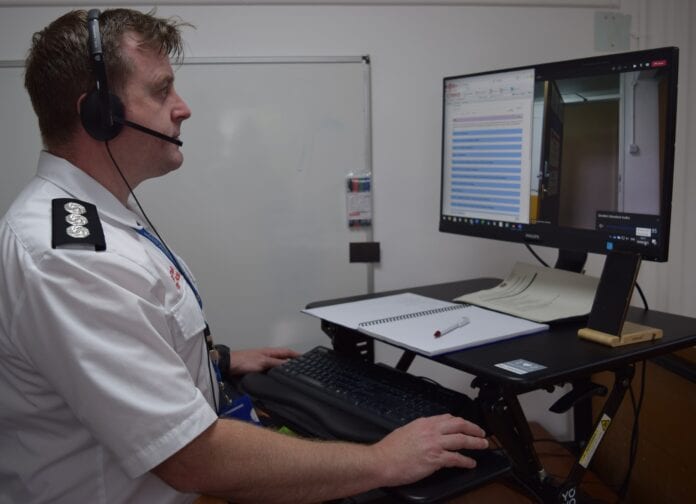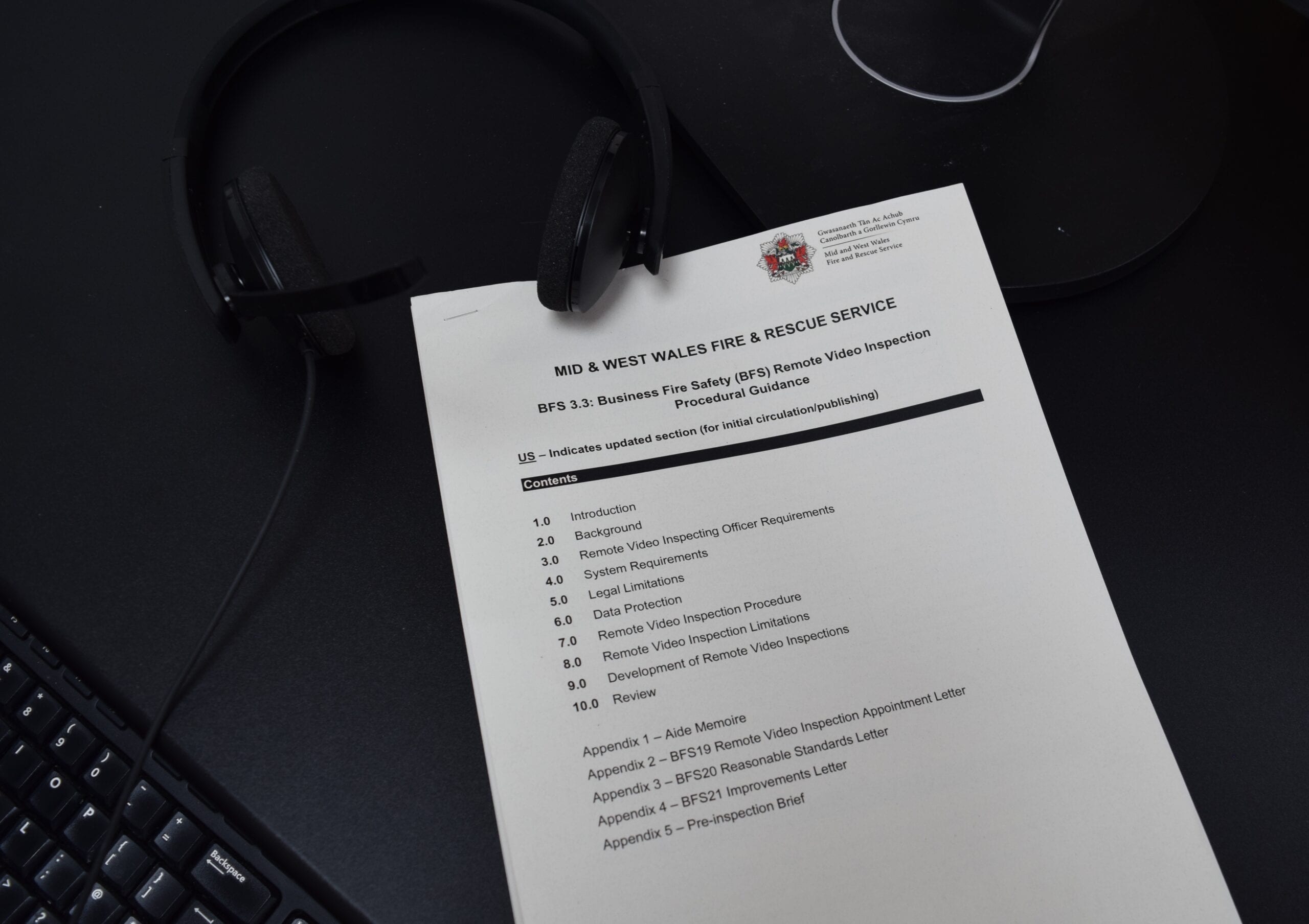
Reacting to the coronavirus pandemic has meant a change in working practices for most industries, and the Mid and West Wales Fire and Rescue Service’s Business Fire Safety department was not immune to this impact. As part of their regulatory activities, under the Regulatory Reform (Fire Safety) Order 2005, Inspectors from the Service undertake in the region of 1000 planned audits per year of premises identified as part of their risk-based audit programme. The type of premises audited is varied but includes hotels, hospitals, residential care premises, education establishments, the communal parts of High-Rise Residential Buildings and other non-domestic premises.
A revision of audit risk assessments, following the first lockdown, saw all auditing activities suspended, with face to face visits from the Fire Safety team being undertaken only for reactive and enforcement work.
As the various stages of lockdown, unlock and further lockdown unfolded, it became apparent that there could be quite some delay before auditing activities could return to normal. This led the Head of Business Fire Safety, Group Manager Sion Slaymaker, to consider alternative approaches.
“I was concerned that there was no end in sight to the restrictions imposed by the pandemic and that the level of service delivery received by premises’ Responsible Persons was inevitably being impacted. We were unable to identify the Fire Safety deficiencies, which would normally be picked up during audits, and the duty holders at the premises would not have the oversight and reassurance provided as a result of our auditing activities. In addition, there was some concern that Fire Safety arrangements may be compromised as a result of new measures being implemented to mitigate against coronavirus transmission”.
Following a review of potential options, the Business Fire Safety team sought to develop an audit process that could be undertaken entirely remotely, through the use of videotelephony.
It is believed that Mid and West Wales Fire and Rescue Service (MAWWFRS) has been the first Service in the UK to develop Remote Video Inspections (RVI). RVI enables Business Fire Safety inspecting officers and the onsite responsible person of a premises to conduct a visual inspection of the fire safety standards within the premises, without the physical attendance of the Inspecting Officer. RVI is intended to take the form of a structured and methodical one to one inspection using online video meeting software. By using RVI, MAWWFRS can capture a snapshot of the current fire safety provisions and standards within premises without the associated risks of on-site inspections and possible coronavirus transmission.
The information gained during the RVI will form the basis of any further action required and ensures the ongoing maintenance of fire safety measures to protect the workforce and members of the public.
Group Manager Sion Slaymaker added “The utilisation of Remote Video Inspections has allowed us to return to the targeted auditing of premises that forms part of our risk-based audit programme. The feedback from the responsible persons and duty holders receiving the audit has been exceptionally positive, although there have been on a limited number of occasions the usual challenges with connectivity issues. RVI is now an auditing tool that forms part of our routine auditing structure, alongside the traditional face to face visits. It continues to reduce the risk of any coronavirus transmission but also has the benefits of increased efficiency and reduced costs as a result of lessening transport demands.”
Help keep news FREE for our readers
Supporting your local community newspaper/online news outlet is crucial now more than ever. If you believe in independent journalism, then consider making a valuable contribution by making a one-time or monthly donation. We operate in rural areas where providing unbiased news can be challenging. Read More About Supporting The West Wales Chronicle





















